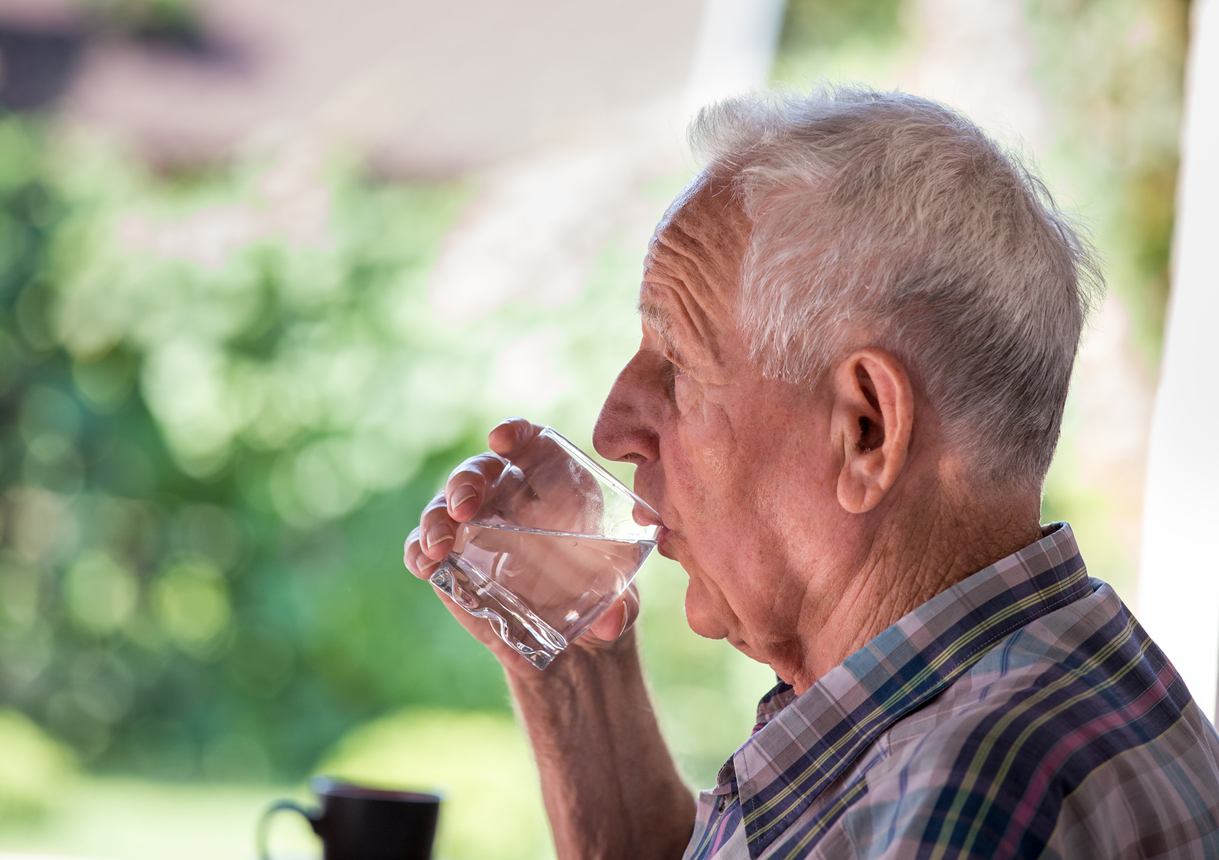The Importance of Summer Hydration For Seniors
I’ve always looked forward to the summer months. The long days and warmer weather give me more time to be active outdoors whether it’s doing yard work chores around the house or escaping for the weekend with my family for a hike in the hills.
As a health professional for more years than I can to recall, I know that physical activity contributes to a healthy lifestyle. I also know that as the temperature rises and activity increases, so does the importance of being properly hydrated. Maintaining the right balance of fluids in the body is a smart thing for people of any age but for seniors, it’s especially critical to their good health.
Dehydration is a condition caused when the body loses more fluids than it replaces. The symptoms are many, some of which are excessive thirst, dry mouth, dry skin, dizziness, and diminished urination or sweating. In more severe cases, people can experience fainting, confusion and shock as well as rapid heart rates and breathing. Left untreated, dehydration can result in serious and sometimes life-threatening physical complications.
Older people and those caring for them should always be on the alert for signs of dehydration. The reason why is because as we age, we become less sensitive to feelings of thirst. Our body can be asking for more water, but our brain can’t respond as fast as it once did. Therefore, it’s important for seniors to drink fluids regularly, even before they feel the need because the sensation of thirst in older people is often the first sign of dehydration.
The good news is that dehydration in seniors is a condition that can be easily prevented. All that’s required is for them to drink enough water. A general rule of thumb in the medical community calls for a water intake of about eight 8-ounce glasses per day although some seniors may require a little more or less, depending upon their level of activity, health condition and medications they are taking.
Fluid intake should be comprised mostly of water, but it can also include other beverages. Active seniors might consider adding sports-type drinks because they contain beneficial electrolytes and carbohydrates as well as the best hydration liquid – water. Pay attention to sports drinks content labels because some contain high levels of sugar additives which people with diabetes-related conditions should avoid. In these cases, non-sugar alternatives are available.
Juices, coffee and tea are favorite beverages of many seniors, but these drinks should not be counted as part of their daily fluid intake requirements. Some juices are high in sugar while coffee and tea contain caffeine which can be a diuretic.
Another smart way to minimize the risk of dehydration in seniors is supplementing their diets with foods that are high in water content. There is a wide variety of delicious and nutritious fruits, vegetables and dairy products that have high water volumes. Popular fruits that fall into this category include watermelon (92%), strawberries (91%), peaches (89%) and oranges (88%). Cucumbers and lettuce are over 95% water while skim milk, yogurt and cottage cheese have high water content. Soups and broths are also good dietary considerations that can help seniors meet their minimum daily fluid intakes.
The best way for seniors to stay hydrated this summer and any time of the year is mix generous amounts of common sense and water into their daily routines. By keeping their body fluid levels balanced, they will live a healthier life all the seasons of the year.

